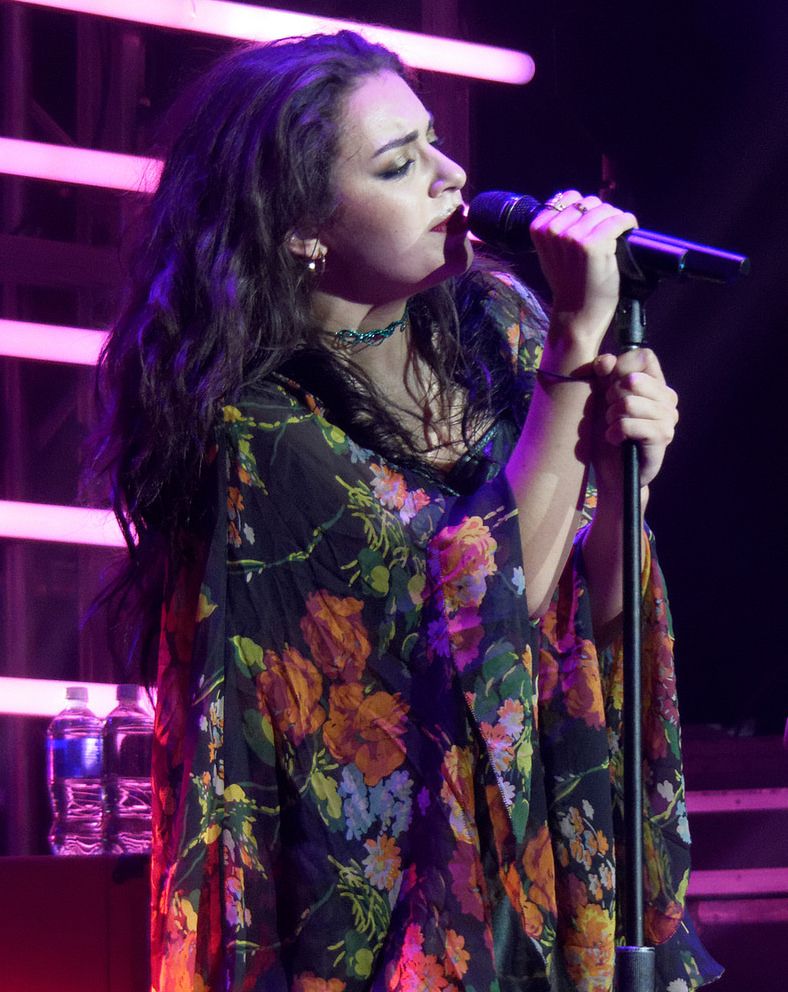Charli XCX Finds Herself and Her Sound on “Charli”

Charli XCX is a peculiar pop singer. Since her major breakthrough onto the music charts with her earworm choruses on Icona Pop’s “I Love It” and Iggy Azalea’s “Fancy,” Charli has fluttered around in music industry limbo, never quite reaching stardom, never quite fading into obscurity. Over the last decade, she has managed to stay relevant by crafting hits for other singers like Gwen Stefani and Camila Cabello and dropping radio singles (remember summer 2017’s “Boys”?), but it seemed like her major releases would never be received with the same enthusiasm as her feature work.
Always a bit of a vanguard for mainstream pop, yet never venturing too far afield of its security, Charli couldn’t seem to find a proper audience for her music. Nevertheless, with “Charli,” her new album, Charli XCX’s moment may have finally arrived.
On the new record, Charli bares it all. “Charli” is pure, shiny synth pop. She moves seamlessly from ballad to banger, bouncing off silvery production from fellow Brit A. G. Wells, the other mastermind behind the album. Together, Charli and Wells craft a pop album to take us into the 2020s — electric and futuristic, yet tender and vulnerable. In this vision, Charli draws support from a sizeable roster of other rising pop stars including, Sky Ferreira, Lizzo, Clairo and Troye Sivan, among others. The ambition is sky high, and, at times, threatens to collapse under the weight of all the layered synths and guest features. Still, Charli’s narrow genre approach manages to hold “Charli” together to create a coherent yet unpredictable record.
From the beginning, “Charli” creates and draws you in to its own synthetic dream reality. “Next Level Charli,” the opening track, establishes the tone and sonic pallet for this world: futuristic and new, yet somehow nostalgic and familiar. Charli imagines a late-night driving anthem that combines 80s-like synths with a punchy drum kit and an infectious, high-intensity chorus. “Cross You Out” with Ferreira is a slow-burning breakup song. Drowning in heavy drums, Charli and Ferreira try to free themselves with crescendoing vocals; however the hint of auto-tune just caps their pitches, not letting them break out of the emotional bonds of the song.
With the next track, “1999,” the album reaches its first bona fide radio hit. “1999,” which was released as a single in 2018, almost threatens to disrupt the direction of the album. Nevertheless, the song is so high-energy and still hasn’t grown stale. “1999” finds Charli reminiscing about the 90s in typical millennial fashion. The song is fun and catchy, laden with 90s pop culture references. Charli brings Sivan along for the ride, who despite being only 24 (making him four years old in 1999), manages to keep up. Sivan, whose 2018 debut album “Bloom” played by the numbers, is elevated by the bouncy production and matches the light personality of the song — he even intones a Michael Jackson-style “he-he.”
“Charli” doesn’t let up after “1999.” Instead, she ups the intensity with “Click,” a track pretty similar in braggadocio to GOOD Music’s 2012 song “Clique.” Charli’s version, however, is updated for the new decade. Saturated in auto-tune, Charli raps over industrial production in a euphoric dream-reality of flexing and friendship.
But as with any clique, “Click” is only as good as its weakest member. In this case, it is Estonian rapper Tommy Cash. A remarkable beat switch is wasted on his verse, which drags down the rest of the song and sounds like a discount imitation of Keith Ape.
With “Warm,” Charli and her guest performers regain their footing. “Warm” features the pop band HAIM, who fit right in over the airy, uncluttered production of the track. “Warm” belongs to a set of soft, understated songs on “Charli” that also includes “Official,” a sweet, sentimental song about modern love and “February 2017,” another love song for the age, this time rooted in apology and reconciliation.
The real standout guest performance on the album, however, comes from Lizzo on “Blame It On Your Love.” Lizzo continues her 2019 hot streak with her playful, bubbly verse on this bacchanalian summer anthem. Despite only appearing briefly in a verse toward the end of the song, Lizzo packs a lot of personality into her bars and ad-libs, carefreely cracking and laughing at her own jokes.
Nevertheless, Charli is not to be outshined on her own album — least of all one with her name as the title. Following “Blame It On Your Love,” Charli reaches the high point of the whole LP, “White Mercedes,” another vivid ballad in the vein of “Cross You Out” and “I Don’t Wanna Know.” On “White Mercedes,” Charli returns to her 80s sentimentalities, romanticizing over melodramatic production. The homage, which may have sounded tacky in a less deft hand, is carried by Charli’s heartfelt expression.
Indeed, on “Charli,” she shows off her remarkable capacity to pull nostalgia into the present. The album closes with “2099,” again featuring Sivan. The sequel to “1999,” imagines the future of pop: full of synth and computerized noises and glassy processed vocals — a contemporary dream of a past consciousness of the future of music. Perhaps that is what “Charli” is trying to capture, the ever-changing future of pop music smelted down and preserved in wax for the new decade.
Perhaps in 10 years, “Charli” will sound outdated and amorphous. Perhaps we will look back on it fondly with our own future nostalgia. But for now, at least, it’s a pretty good record.





Comments ()